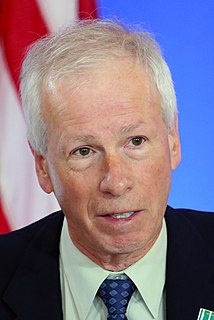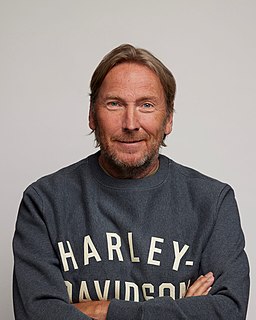A Quote by Alison Hawthorne Deming
I don't want people to write programmatic environmental poems, but I think sustainability should become deeply a part of the consciousness of poetry - an impulse toward compassion, empathy, and social justice.
Related Quotes
The "environmental movement" is becoming an economic movement, is joining the social justice movement, is becoming a sustainability movement. It's leaving behind the "People's Needs versus Nature's Needs" conflict in favor of making the case for environmental health as the essential underpinning of prosperous and stable human civilization.
I believe it's impossible to write good poetry without reading. Reading poetry goes straight to my psyche and makes me want to write. I meet the muse in the poems of others and invite her to my poems. I see over and over again, in different ways, what is possible, how the perimeters of poetry are expanding and making way for new forms.
My wish list is pretty short. I wish that we had empathy. As a society, we are so wrapped up in our own artificial creations that we have become disconnected from one another and the wonder of our natural world. I truly believe that empathy is the key to solving the majority of our environmental and social problems.
I'll tell you what I think. I think sages are the growing tip of the secret impulse of evolution. I think they are the leading edge of the self-transcending drive that always goes beyond what went before. I think they embody the very drive of the Kosmos toward greater depth and expanding consciousness. I think they are riding the edge of a light beam toward a rendezvous with God.
I think we have reached a stage now where we need to find solutions to economic injustice in the same place and in the same ways that we find solutions to sustainability. Sustainability on environmental grounds and justice in terms of everyone having a place in the production and consumption system - these are two aspects of the same issue. They have been artificially separated and have to be put back again in the Western way of thinking.
I would read the Shel Silverstein poems, Dr. Seuss, and I noticed early on that poetry was something that just stuck in my head and I was replaying those rhymes and try to think of my own. In English, the only thing I wanted to do was poetry and all the other kids were like, "Oh, man. We have to write poems again?" and I would have a three-page long poem. I won a national poetry contest when I was in fourth grade for a poem called "Monster In My Closet.







































